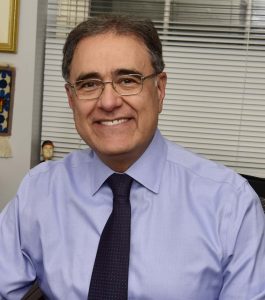
Dr. Bilal M. Ayyub
Professor of Civil and Environmental Engineering
Director, Center for Technology and Systems Management
Dr. Ayyub’s main research interests and work are in probabilistic risk analysis, resilience, sustainability, uncertainty and decision analysis, applied to civil, infrastructure, energy including renewables, defense and maritime fields, climate/hazard-resilient infrastructure, natural infrastructure, environmental/ecological concerns, and risk finance.
Dr. Ayyub completed research and development projects for governmental and private entities including NSF, DOD, DOT, NIST, DHS, and leading insurance and multinational corporations worldwide. Dr. Ayyub is the recipient of several awards, including the 2024 ASCE OPAL Award for lifetime accomplishments in academia, the 2018 ASCE Alfredo Ang Award on risk analysis and management of civil infrastructure, 2019 ASCE President Medal for many efforts to bring adaptive design to the profession to help address a changing climate, 2019 ASCE Le Val Lund Award for contributions to resilience enhancement and risk reduction for lifeline-networked systems through measurement science and associated economics toward informing policy and decision-making practices, 2018 ENR Newsmaker award for passionate effort to give engineers their first formal guidance when designing infrastructure to be more resilient to weather extremes, and 2016 ASNE Solberg Award significant engineering research and development accomplishments in the field of ship survivability. He is the author and co-author of more than 650 publications, and the founding editor-in-chief of the ASCE-ASME Journal on Risk and Uncertainty in Engineering Systems. In addition to 15 edited books including Thoughts and Conversations of Buildings and Other Structures (CreateSpace 2020), his eight textbooks include the following: Uncertainty Modeling and Analysis for Engineers and Scientists (Chapman & Hall/CRC 2006 with G. Klir), Risk Analysis in Engineering and Economics (Chapman & Hall/CRC 2003, 2014), Elicitation of Expert Opinions for Uncertainty and Risks (CRC Press 2002), Probability, Statistics and Reliability for Engineers and Scientists, Third Edition (Chapman & Hall/CRC 2011 with R. H. McCuen), and Numerical Methods for Engineers (Prentice Hall 1996 with McCuen, 2nd edition Chapman & Hall/CRC 2016).
Dr. Ayyub completed his doctorate and master’s degrees from the Georgia Institute of Technology in 1983 and 1981, and bachelor’s degree from Kuwait University in 1980.